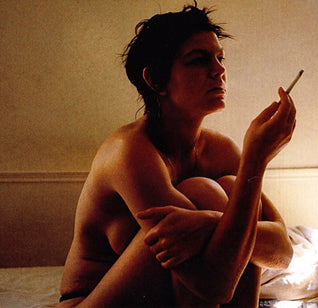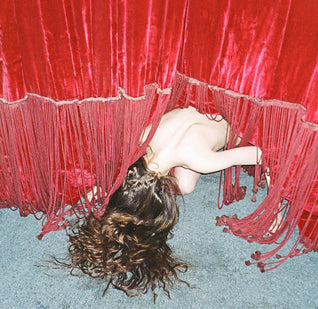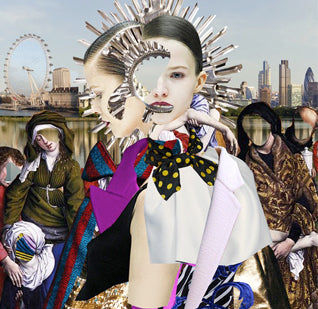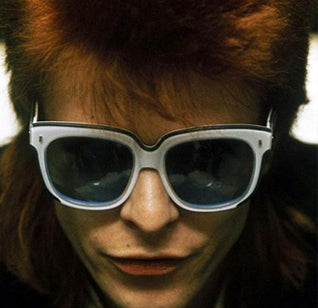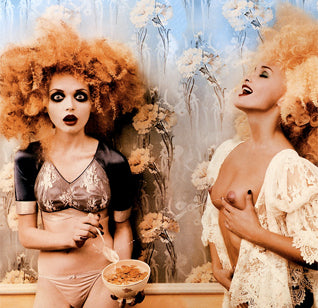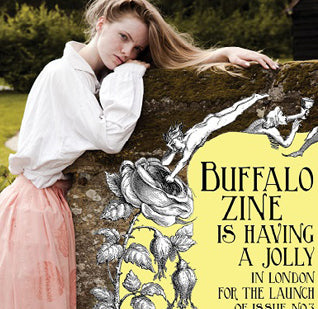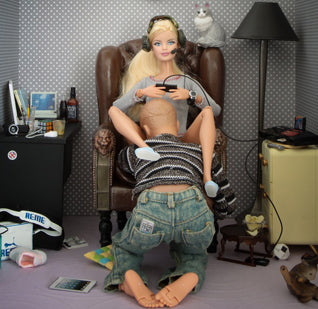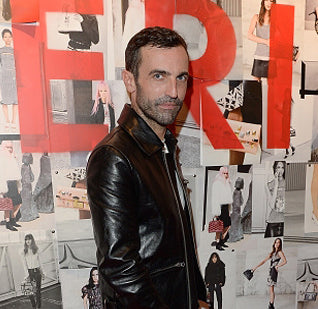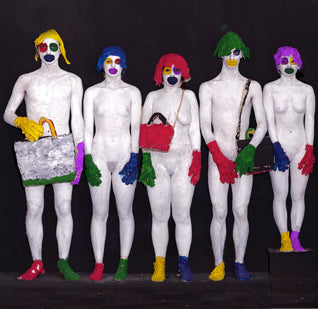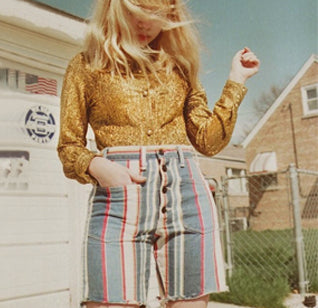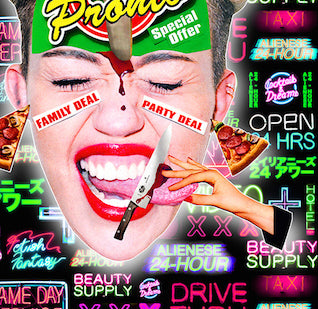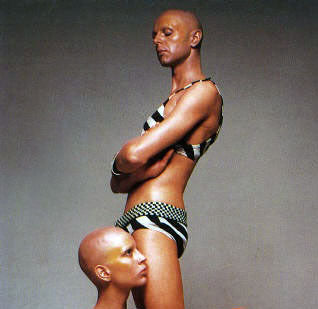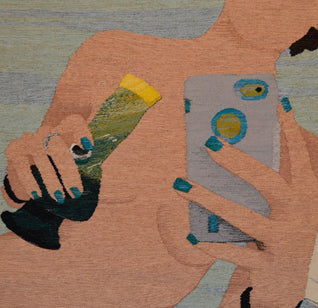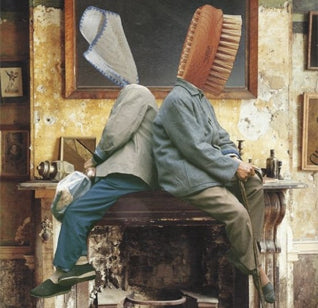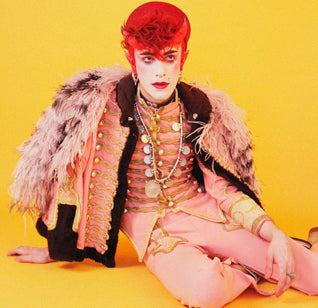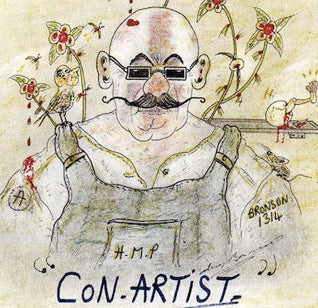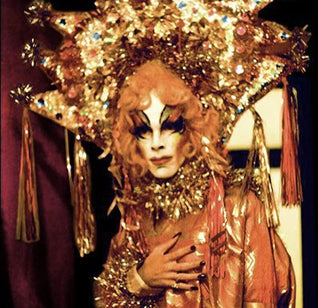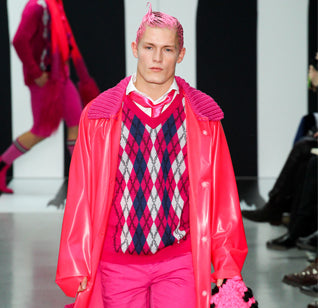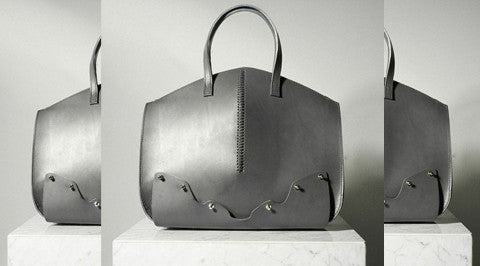BLACK OR WHITE
Liberal critics are policing racial inclusivity in popular culture
by Emma Smith
There's something insipid and tyrannical on the edge of our culture. It disguises itself as culturally sensitive, politically correct and racially aware. But it's a form of policing, perpetrated by the supposedly liberal, that is much more dangerous than the behaviour it seeks to prohibit
In the past year, there has been uproar due to the appearance of black dancers in white singers’ music videos. Leading to worrying and short-sighted accusations of cultural appropriation and racism thrown against the likes of Miley Cyrus, Sky Ferreira, Lily Allen and Katy Perry, to name but a few.

Iggy Azalea, 'Bounce', 2014
Miley's video for 'We Can't Stop' was widely criticised by mainstream platforms, with Vice noting that Cyrus' black dancers appear "like accessories meant to signify authenticity" and argued that "blackness is not a piece of jewelry you can slip on". But to consider Miley's black dancers in her video/onstage as "accessories" because of their race is belittling, as is the suggestion that "blackness" is tangible, defined by set of behaviours such as twerking.
Would it be a more comfortable prospect for Cyrus to use all white dancers? A bunch of tongue-thrusting white girls line dancing in tribute to her achey-breaky-heart trailer park lineage? If Miley is seeking to include and ingratiate herself in black culture in any way, however naively she may go about it, surely it's a positive move and a way for her younger fans to appreciate inclusivity.

Grimes wears Givenchy haute couture nose-ring, Dazed & Confused, 2012
Suggesting that musical icons are using black people as a tokenistic gesture is troubling as it insinuates that an all-white or all-black front would be more acceptable. There was no racist agenda to be found hidden in the sweaty abandon of Miley Cyrus’ seemingly endless backside-wiggling. Nevertheless, critics are wildly keen for her to stop and consider her privilege before adopting grills and grinding against unsuspecting humans, unhappy with Cyrus exploring identity in what she clearly considers a world free of racial boundaries.
Equally, Lily Allen's now legendary 'Hard Out Here' promo was a clear-cut commentary on how expectations of behaviour are thrust on women in the music industry: women as objects, grinding, pouting and shaking under the impenetrable and unavoidable male gaze. It could not be more of a blatant, tongue-in-cheek deconstruction of the performance of femininity and yet she was met with outrage at her inclusion of black female bodies. The suggestion being that we, the viewers, were invited to scoff at and not with these women.

Backing Dancer in 'Hard Out Here', Lily Allen, 2013
Under the same umbrella concern of cultural appropriation, Lana Del Rey, supermodel Karlie Kloss and, in the past few weeks, Pharrell Williams, have all been attacked for wearing a Native American headdress as a fashion symbol. An act that should spark debate about the increasing disparity between sacred and profane in our commodity culture not accusations of a blatant racism.
Similarly, Katy Perry's "geisha inspired", kimono laden performances have also come under fire as an example of insensitive, pick and mix appropriation which "belittles the origin culture". The implication appears to be that it is disrespectful to stray outside of your given culture or to acknowledge another that you are not born into.

Lee Som in Naive American Headdress, Oh Boy! Magazine, 2013
Supporting change and inclusivity rather than separatism, we should leave the kneejerk outrage behind. Let’s start adopting a stance suggested by Patricia Park wherein "we read it as an example of cultural pluralism" and eventually could establish, as political activist Randolph Bourne sees it, "a transnational America…(where) various ethnic cultures would interact in a tolerant atmosphere to create an enriching variety of ideas, values, and lifestyles".
Ultimately the doctrine of political correctness is a wonderful, crucial thing. Nobody is denying the necessity of cultural sensitivity in a world with a continuing undercurrent of racism. Yet, it seems obsessively pedantic and misguided to zone in so brutishly on these celebrities, whose attitudes to race and culture are potentially much more progressive, nuanced and inclusive than those who seek to criticise them.










